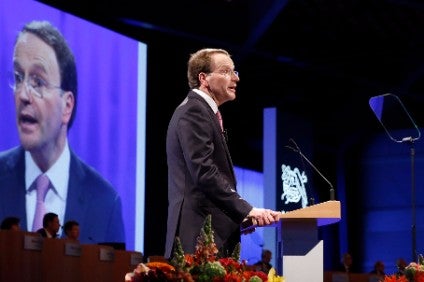Another week, another millennial-centric bolt-on at Nestle.
On Thursday (14 September), the world’s largest food maker followed up the move announced seven days before for US vegetarian business Sweet Earth with another deal for a company that has ridden the wave of interest in quality, provenance and sustainability – not trends limited to the millennial consumer but product attributes very important to that cohort.
Nestle announced it had acquired a majority stake in US coffee roaster and retailer Blue Bottle. Of course, such a deal sits outside our beat but it caught our eye for a couple of reasons.
First, it speaks to Nestle’s strategy, announced in June, to focus its capital spending on “advancing high-growth food and beverage categories”, which, it says, includes coffee.
But, secondly, and more tellingly for the food sector, the investment in Blue Bottle is another sign of a change in Nestle’s M&A strategy since the arrival of CEO Mark Schneider earlier this year.
The acquisition of Sweet Earth, the investment in Blue Bottle and the purchase in June of a minority stake in US online meal-kit service Freshly show Nestle is more ready to use M&A to tap into some of the fast-growing niches of the sector.

US Tariffs are shifting - will you react or anticipate?
Don’t let policy changes catch you off guard. Stay proactive with real-time data and expert analysis.
By GlobalDataNestle, of course, it is not alone in doing so; a raft of packaged food majors have made similar moves in recent quarters.
However, under Schneider, there appears to be a change in emphasis at Nestle than under former CEO Paul Bulcke.
“Despite the insignificant size of the [Blue Bottle] business, Nestle has adjusted its strategy to focus on younger firms which are successful to understand the new food trends,” MainFirst analyst Alain Oberhuber agrees. “Under the old CEO, Paul Bulcke, it was never a topic, going in that direction. They bought a couple of smaller companies in medical nutrition – of which you never heard any more.”
None of these recent M&A moves will have a material impact on Nestle’s top line. And there will be some Nestle shareholders who would prefer to see the company take bolder action on its portfolio.
Remember June also saw Third Point, a US hedge fund controlled by activist investor Daniel Loeb, take a CHF3.28bn stake in Nestle – equivalent to about 1% of shares – and call for change at the company, including the sale of its 23% stake in L’Oreal.
Among Third Point’s demands was a call for Nestle to follow its peers and set a formal target on margins.
However, despite there being merit to some of Third Point’s assertions, Nestle shareholders should welcome the company’s recent bolt-ons and the apparent change in its M&A strategy, even if, to some, the deals could simply represent the company adding to its leadership position (coffee) or investing in a very small start-up (Freshly).
“Investors do not appreciate it, they do not realise what kind of potential there is,” Oberhuber says. “Currently, what my clients [want] is a complete change of the Nestle portfolio, with divestments and then investments in nutrition. Investors would like to see other things coming through.”
Interestingly, given the career background of Nestle CEO Schneider, some analysts are drawing parallels with an M&A trend seen a few years ago in the pharma sector.
Schneider joined Nestle from Germany-based healthcare business Fresenius and, under his stewardship, the company made a raft of acquisitions. According to Bloomberg data, in an active pharma sector, Fresenius made 32 takeovers in 13 years with Schneider at the helm.
To some analysts covering the food sector, our industry could see a similar wave of activity across the piece. And Nestle, under Schneider, could be a ready participant.
“There could be a good comparison with pharma. When pharma went into biotech, they bought all these small companies. Some were flops; others were big successes,” Oberhuber says. “Strategically today the food industry is in the same difficulty as pharma a couple of years ago and the move into biotech helped them quite a lot; they had some growth. We see not a lot of organic growth in food. Millennials are changing their tastes pretty fast as are distribution networks – and large companies find it hard to follow. Investors should be [more open to these kinds of acquisitions], absolutely.”
Not every acquisition or investment Nestle makes will pay off. Competition for assets is fierce, with packaged food majors the world over following similar strategies. It is difficult for a company the size of Nestle to remain in tune with the latest trends driving food and beverage and, at times, it will miss the boat. But there is little doubting the change in emphasis at the Swiss behemoth in recent months as it surveys where to invest.





